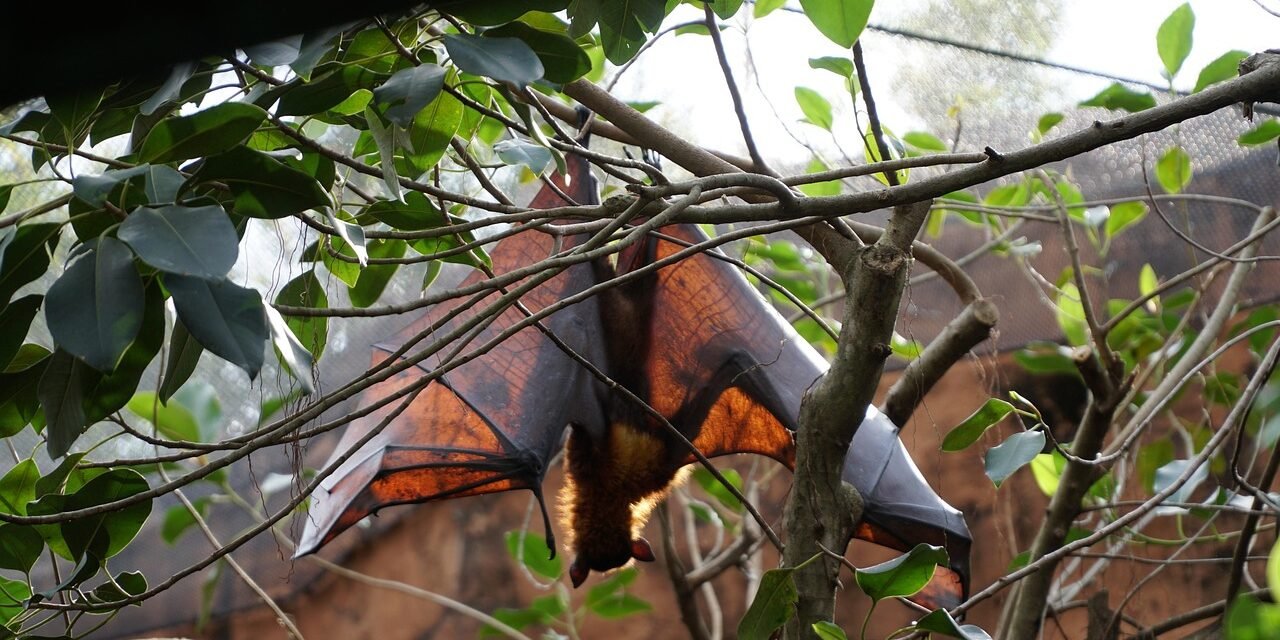When people think of pollinators, bees and butterflies usually come to mind. But bats — especially the Jamaican fruit bat (Artibeus jamaicensis) — play a crucial role in pollination too. These small, nocturnal mammals are key to maintaining healthy ecosystems in the Caribbean and Central America. Without them, many plant species would struggle to reproduce, affecting entire food webs.
Meet the Jamaican Fruit Bat
The Jamaican fruit bat is a medium-sized bat, about 9 centimeters long, with large eyes and a short, broad snout — ideal for eating fruit. Its diet mostly includes figs, guavas, bananas, and other soft fruits, but it also feeds on nectar and pollen. This diet makes it an effective pollinator and seed disperser.
Native to Jamaica but widespread across Central America and parts of South America, this bat thrives in forests, caves, plantations, and even urban areas. It’s adaptable, but still vulnerable to habitat destruction, climate change, and human disturbance.
How the Bat Pollinates
Pollination by bats is called chiropterophily. As the Jamaican fruit bat searches for food, it moves from flower to flower, collecting pollen on its fur and spreading it as it feeds. Many tropical plants, especially those that bloom at night, rely heavily on bats for pollination.
Some flowers have even evolved to suit bats. They tend to open at night, have a strong, musky scent, and are often large and pale-colored, making them easier for bats to find in the dark. In return, the bats get a rich source of nectar and fruit.
The Jamaican fruit bat’s role doesn’t end with pollination. As it consumes fruit, it disperses seeds across large distances, promoting forest regeneration and plant diversity.
Why Their Role Matters
Healthy bat populations mean healthy ecosystems. Many plants that depend on bats for pollination and seed dispersal are crucial not just for forests but also for humans. These plants provide timber, medicine, and food.
Without bats, some plants would fail to reproduce effectively. Over time, this could lead to declines in plant populations, reduced forest health, and less biodiversity. In turn, animals that depend on those plants — from insects to large mammals — would also suffer.
In agricultural landscapes, bats help farmers by pollinating fruit crops and keeping insect populations under control. Their services save billions of dollars worldwide, though bats often get far less credit than bees or birds.
Threats to the Jamaican Fruit Bat
Despite their importance, Jamaican fruit bats face serious threats. Deforestation, pesticide use, and urban development reduce the habitats they need to survive. Climate change is another growing threat, altering the availability of food sources and shelter.
Bats also suffer from negative stereotypes. Many people fear bats due to myths about disease or vampire lore, leading to unnecessary killing and habitat destruction.
Conservation efforts are crucial. Protecting natural forests, creating bat-friendly spaces, and educating communities about the ecological benefits of bats can help ensure that species like the Jamaican fruit bat continue to thrive.
Conclusion
The Jamaican fruit bat may not be the first pollinator people think of, but it’s one of the most vital. Its work behind the scenes sustains tropical forests, supports biodiversity, and even benefits human economies. Protecting this small but mighty mammal means protecting the future health of entire ecosystems. As we face global environmental challenges, it’s time to recognize and respect the role of bats — not just as creatures of the night, but as essential allies in keeping our world alive.









